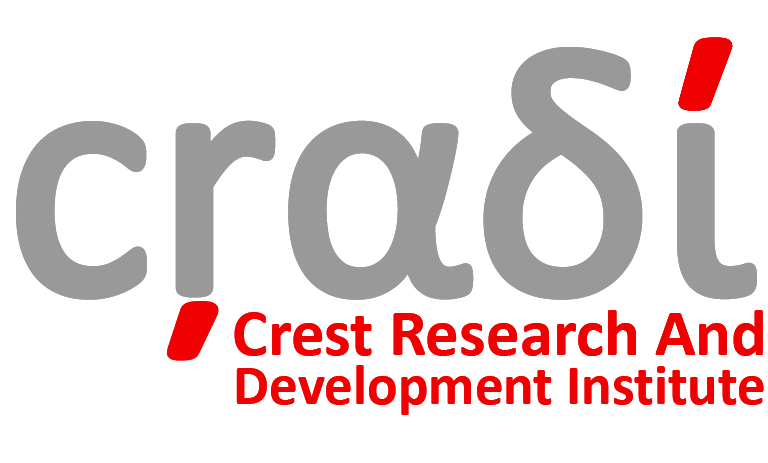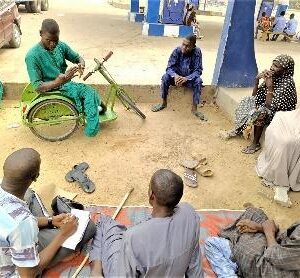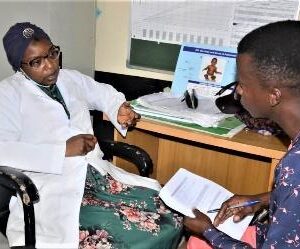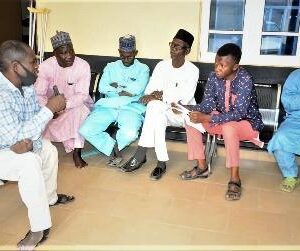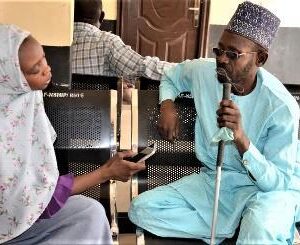
Objective:
Inclusion of Persons with Disabilities in Humanitarian
Practice Area:
Developmental Aid & Research
Status:
Completed
Locations:
Nigeria - Borno state
Start Date:
March 2023
End Date:
April 2023
Project Summary
In recognising the challenges of disability around the world, Christian Blind Mission (CBM) picked up the cause of ensuring the inclusion of PLWDs in humanitarian efforts. Guided by the principles of humanity, impartiality, “do no harm,” conflict sensitivity, and human rights principles of equity and non-discrimination, CBM is committed to promoting the rights and well-being of PLWDs.
CBM implemented a project titled “Disability-Inclusive Humanitarian Action for displaced populations and host communities in West and Central Africa.” The project, which began in August 2022, aimed at improving the living conditions and access to inclusive humanitarian aid for displaced populations, refugees, returnees, host communities, and Organizations of Persons with Disabilities (OPDs) in four countries: Democratic Republic of Congo, Cameroon, Nigeria, and Niger. The project focuses on the critical sectors of health and protection, aiming to address the specific needs of the most vulnerable individuals within these communities.
To ensure the effectiveness of their efforts, CBM engaged Crest Research and Development Institute (CRADI) to conduct a comprehensive Disability-Inclusion Review. This review involved a comparative study of the inclusion of persons with disabilities in humanitarian aid across the project areas. By assessing the barriers and enablers to accessing services, humanitarian assistance, and community engagement, the study shed light on best practices and identified areas for improvement.
In Nigeria, the study covered Borno state, including four Local Government Areas (MMC, Jere, Konduga, and Gwoza), covering 15 wards. It will actively involve representatives from OPDs, key stakeholders, humanitarian organizations, and public institutions. By conducting this study, CBM and its partners aim to contribute to the existing literature on disability-inclusive humanitarian action and foster a community of practice focused on promoting the rights and well-being of PLWDs.
The study was aimed to:
- Identify the risks and barriers as well as enablers in accessing humanitarian, incl. priority goods and services in the project areas;
- Identify the proportion of persons with disabilities and vulnerable persons in the project areas and their specific needs depending on the type of disability or impairment.
- Analyse the level of inclusiveness of the humanitarian responses of the different humanitarian actors in the target countries, as well as their practice of including people with disabilities in all phases of their programs;
- Make a comparative analysis of the inclusion of people with disabilities in the 4 project’s countries of implementation specifically, the areas of implementation in those countries;
- The various elements of comparison between countries are (1) barriers, (2) the facilitators, as well as (3) the status of inclusion of persons with disabilities in the humanitarian contexts of the four countries.
- Propose necessary actions and Key practice and realistic recommendations to foster the inclusion of people with disabilities in programs and make responses, and community engagement inclusive.
- Collect good practices for overcoming barriers and developing enablers that can be adapted and used in other countries. The project and the accompanying study signified a significant step towards building a more inclusive and equitable society, where the needs of all individuals, including those with disabilities, are recognized and addressed in times of crisis.
The study adopted a mixed-methods approach, incorporating qualitative and quantitative data collection and analysis to bring together the perspectives of different stakeholders. This specifically included internally displaced persons (IDPs), refugees, returnees, host community members, organizations of persons with disabilities (OPDs), international humanitarian organizations, civil society organizations (CSOs), women’s rights organizations (WROs), and others.
To ensure successful achievement of the study’s goals, CRADI adopted the same tools used in other countries where similar studies are being conducted, while fine-tuning them to fit the Nigerian context for ease of comparative analysis. Additionally, a participatory approach was used to ensure that all stakeholders were fully engaged in the process. This approach aimed to ensure that stakeholders took ownership of the process and the results.
The OPDs and other stakeholders were engaged in a facilitated workshop centrally, which provided an opportunity for Focus Group Discussions (FGDs) to gather vital information to triangulate the study’s findings. Finally, the study adopted a Utilization-Focused approach to align with the client’s needs for ease of comparison and adaptation into program design and implementation.
Project Gallery


